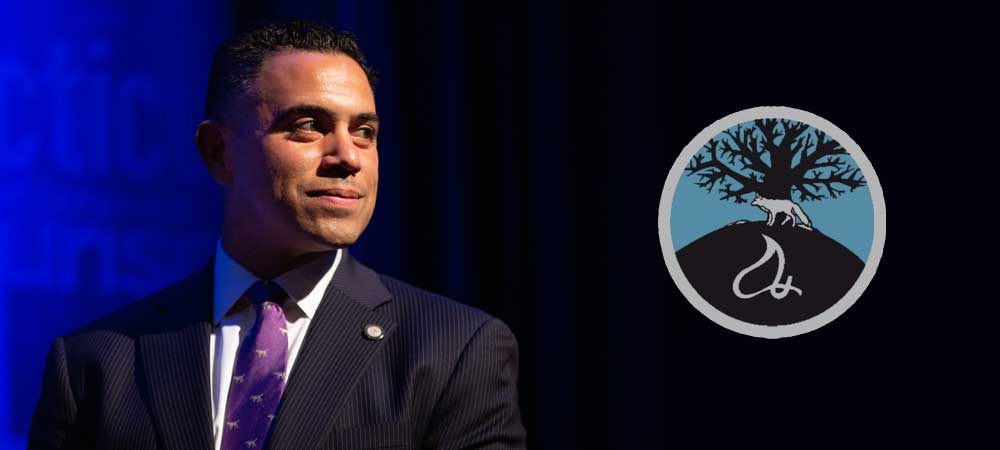- Legalizing sports betting and iGaming are crucial in helping the economy of Connecticut who is reeling from the outbreak of COVID-19.
- If made legal in the next month, sportsbooks could open by Super Bowl 55.
MASHANTUCKET, Conn. – When will Connecticut see a legal sports betting market? Tribal Chairman of the Mashantucket Pequot Tribe, Rodney Butler, sat down with LegalSportsBetting to talk about the current state of progress regarding the industry.
There has been a constant back and forth on the subject between Tribal and commercial businesses as to who should be allowed to open a sportsbook in the Constitution State.
What’s Happening In Connecticut?
Unlike other states with Tribes that claim that sports betting can be done through their current compacts, Connecticut Tribal Compacts would require minor amendments to add legal sportsbook operations to their current gaming menus.
“We’ve been working on this subject for almost five years, even pre-PASPA. We were talking about iGaming and sports betting and everything and it didn’t become urgent to anyone until it became a reality with the Supreme Court ruling which is understandable,” said Butler. “We have been in deep conversations of how Connecticut has got an incredible opportunity here where there has been a Compact with two Tribal Nations that has proven to work for the last 25 years.”
Per Butler, through their keno expansion, the Tribes and the state came to an agreement that would allow for gaming to be offered by the Tribes outside of their two reservations and more on a statewide basis.
It was thought that this legal structure would naturally expand into sports betting and iGaming, but politics has since stood in the way of this from happening.
Butler claims the problem boils down to a lack of truly understanding the logic behind what legalizing sports betting and iGaming with the Tribes could do for Connecticut. It’s not about having a monopoly on the industry, it’s about a proven ability to generate gaming revenue which they have done to the sum of $8 billion since 1992.
“I think there are still some people in the administration that are lobbying for various reasons to open up commercial gaming at the risk of losing the agreements with the Tribes but at the end of the day, in a state that’s in the financial crunch that we’re in, it’s all about economics, and at the end of the day the deal with the current Tribes and working through us to preserve our current agreements and expand those to sports betting, iGaming, iLottery, and the like provides the most economic gain for the state,” said Butler. “You sign a contract and one party breaks it, you’re not obligated to it anymore, that’s essentially what this is. (if commercial casinos are ever included, the Tribes will pull out altogether) It would be one thing if it was only worth one million dollars but we’ve paid eight billion dollars to the state since 1992 between the two Tribes for this gaming exclusivity. That’s worth something. No one else has done that for the state.”
While it’s been almost five years of trying to get sports wagering and iGaming and everything off of the ground, the more time that passes the more that delays are likely to happen as has been the case.
For one, time makes it easy for more people to express their opinion on the subject which puts a kink in progress. Then of course there was the change in administration.
At first, Governor Ned Lamont who took office in 2019 wasn’t up to speed with Tribal Compacts and how it all worked. He has since turned a corner and fully understands the landscape of it all.
“I think once we get some leadership between the two Tribes and the Government where we each collectively say here’s what we want to do, then legal sports betting can happen tomorrow. We were working towards that in the last legislative session but then COVID shocked the world and reset everything,” said Butler. “When Governor Lamont sees the incredible leaps and bounds that the iGaming and now sports betting market are doing in New Jersey, I think he sees that as a real economic opportunity that Connecticut of all the states in the region has the easiest ability to make a reality.”
What’s Next For Connecticut?
While commercial businesses would like to be included in sports betting, it wouldn’t make sense based on the figures according to Butler.
The money that could be produced by the Tribes if they were given the green light to open up iGaming and sports betting would exceed any number a commercial sportsbook would generate for Connecticut.
Not to mention, if the commercial businesses were to open up shop, all of the gaming revenue produced by the Tribes would no longer be given to the state. It would instead end in a tremendous loss for the economy statewide.
“If they move forward with commercial sports betting, what they would generate, potentially generate in an entire year, is less than what both Tribes contribute to the state each month,” said Butler. “Again, the logic isn’t there to why you’d want to break that agreement but that’s the reality of it. For us, it benefits the state, again one because it preserves the current agreements and two with what we’ve seen in many other states with the expansion of sports betting and iGaming actually adding value to the land-based properties and driving people in and just expanding the reach of those facilities. I think everyone was afraid when iGaming and sports betting started in New Jersey saying “well, there goes Atlantic City” but quite the contrary happened, the market actually expanded with the introduction of that product.”
It’s all about modernizing the gaming industry and putting it all online. This will allow Connecticut sports betting to increase revenue for the state.
There could be two more special sessions prior to the close of 2020. Either of these sessions could bring up the topic of sports betting and iGaming. All of the internet gaming options that were included in the previous bill which didn’t pass in the regular session could be brought up now and offered by the Tribes if passed.
Should they wait until the 2021 session, Butler remains hopeful as always. But he’s hopeful for a special session that will allow the legalization of the industry.
When Connecticut finally does make the market legal it would take about three months to launch because the Tribes would need to receive various approvals as they run businesses differently than commercial companies.
However, that is a much faster turnaround than the minimal six months it would take other platforms.
“I think we could get all of this legalized this year. There is really no reason to wait six months, meaning the start of the next legislative session, for something we already know the outcome of. I’ve had the same perspective for the last five years, to the point of how easy it is, I will admit it’s incredibly frustrating but for whatever reason, politics kicks in and takes over the process,” said Butler.
All in all with iGaming, iLottery, and sports betting, Butler says estimates show about $80 million in combined annual revenue for Connecticut.
Sports wagers would make up $10-$15 million of that.
If special sessions this year do include this topic for passage, Connecticut colleges will be prohibited from wagers. If one of these sessions happened within the next month, the Constitution State could be using state-sanctioned sportsbooks to gamble on the Super Bowl.
“I’m hopeful for 2020, with all the doom and gloom that has come in 2020, I think this is an opportunity to provide people with some hope and show that there are opportunities to grow this economy. Connecticut’s unemployment rate is hovering around 10%, unlike other states this last month we’ve crept up a few points, and for us in southeastern Connecticut we’re hovering around 15% unemployment and that’s primarily because of the casino base and the impact that it’s had,” said Butler. “Statewide as we are heading into the Fall and into the Winter when God knows what’s going to happen between the Flu and any kind of additional spark up of COVID, what more shutdowns are going to happen and people hunkering down at home and what have you. This is a way to not only provide additional revenue streams for the state and it’s economy as the whole statewide economy is struggling but also and quite frankly an incredible form of entertainment for everyone stuck at home.”
Advertising Disclosure
In order to provide you with the best independent sports betting news and content LegalSportsBetting.com may receive a commission from partners when you make a purchase through a link on our site.
News tags: Connecticut | Coronavirus | COVID-19 | Mashantucket Pequot Tribe | Ned Lamont | NFL | PASPA | Rodney Butler | Super Bowl

Christina has been writing for as long as she can remember and does dedicated research on the newly regulated sports betting market. She comes from a family of sports lovers that engage in friendly bets from time to time. During the winter months, you can find Christina baking cookies and beating the entire staff at Mario Kart…the N64 version of course.


 College Football Betting
College Football Betting Best Online Sports Betting
Best Online Sports Betting Best Legal NFL Betting
Best Legal NFL Betting States With Legal Sports Betting
States With Legal Sports Betting Sports Betting Events
Sports Betting Events




